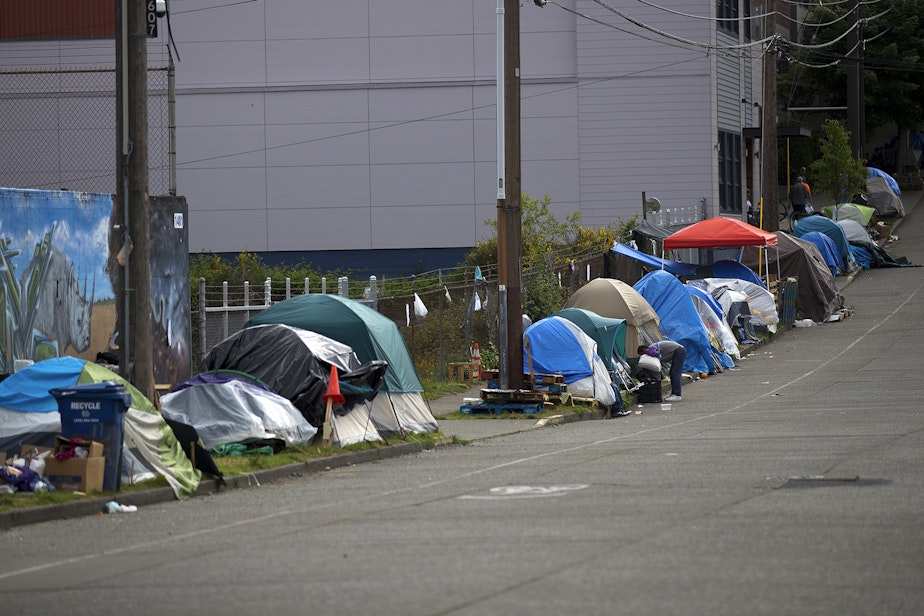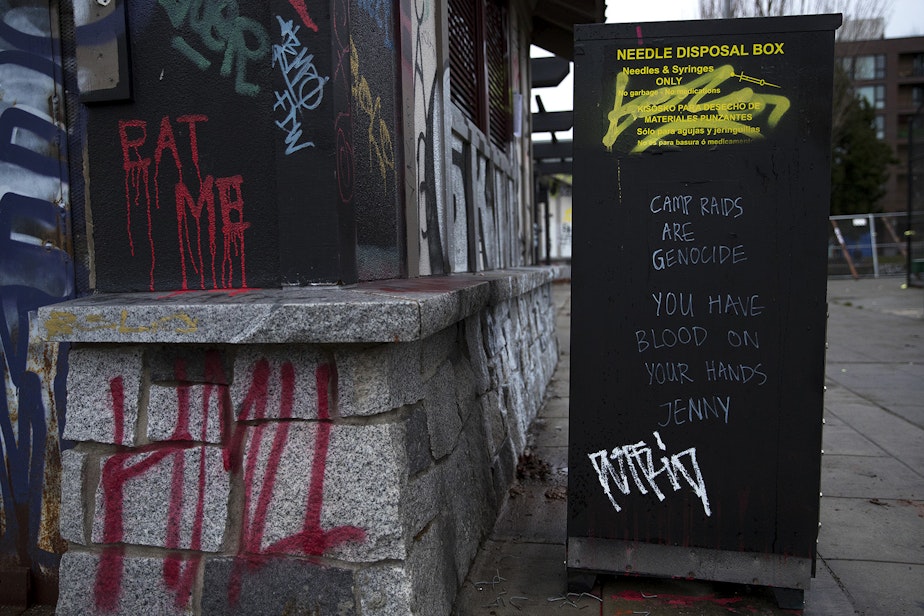What King County’s first homelessness authority wants to do differently

The number of people experiencing homelessness has increased during the pandemic. And those who were once allowed to camp in public spaces are now increasingly being cleared from those areas.
Is there a solution?
Marc Dones is the leader of the new King County Regional Homelessness Authority. Dones has a background in racial equity and activism, and they helped design the position.
Seattle's booming housing market and gentrification were already exacerbating the homeless crisis when the pandemic hit, bringing with it record unemployment.
Dones — who uses they and them pronouns — has been in the position for just a few months now, but they have personally-lived experience with the system and its shortfalls.
"I've had housing instability. I have experienced sexual assault. I've been institutionalized. And was not heard or actively was told I did not understand my own situation," Dones says.
They recounted a time when they were 18 and suffered a psychotic episode. Hospital staff used Dones' episode against them, arguing they couldn't possibly know what was best for them afterward.
"To use that to undercut or undermine me in this moment — when I am asserting 'here is what would be helpful' — is a really common dynamic in a lot of our systems," Dones explains. "Because they are predicated on the notion that there is an expert, and that expert is not the person who is experiencing whatever the thing is."
In designing the position they now hold, Dones aimed to change that dynamic by giving people with lived experience some of the power in developing a plan for the region.
Sponsored
They want to hear from the people who know what it's like to not be able to find a bed in a shelter, to camp in a public park and be swept out by police when that no longer suits the community — a policy of which Dones is highly critical.

Members of the governing committee include the mayor of Seattle, two Seattle City Council members, three King County Council members, three officials from suburban cities and three people chosen by the Lived Experience Coalition who have experienced homelessness.
"I don't know if you can necessarily change people's attitudes toward folks who have experienced homelessness," says Seattle Times homelessness reporter Scott Greenstone, noting those perceptions vary based on the circumstances, like whether someone on the street is a child or an adult.
"But what Marc's plan was, essentially, is it doesn't matter how those folks view these people. We're going to give them a say in the process."
Sponsored
A new plan
Dones will have to come up with a plan for Seattle and surrounding areas, where perceptions vary and officials are already moving forward with their own local policies.
Consider cities where camping in public spaces has been banned; a policy widely criticized as essentially criminalizing homelessness.
Dones is especially concerned with what they see as a gap between short-term shelter and permanent housing. They say the region, and the country, doesn't have a clear bridge between the two.
And what were supposed to be short-term solutions are instead being presented as long-term housing. Among them: tiny house villages.
"Outside is not inside," Dones says. "I think we need to begin to move away from tiny home villages, and we need to be creating solutions for people where they are housed."
That puts Dones at odds with Seattle officials, who are planning and already working to double the number of tiny house villages in the city.
"Obviously, the number one thing is that we just don't have enough super cheap housing," Greenstone says. "And Marc has admitted that Marc can't fix that problem. That has to be fixed by elected leaders and money."
Elected leaders — and the money they have power over — will continue to be a part of the process; homelessness is likely to be one of the key topics in this year's Seattle City Council and mayoral races.
Sponsored
But how they work with Dones and whether they support Dones' plan is yet to be seen.
Dones' goal is to have a draft of their sub-regional plan by September. That draft will map out where people are homeless and what those areas need to get them into housing.


